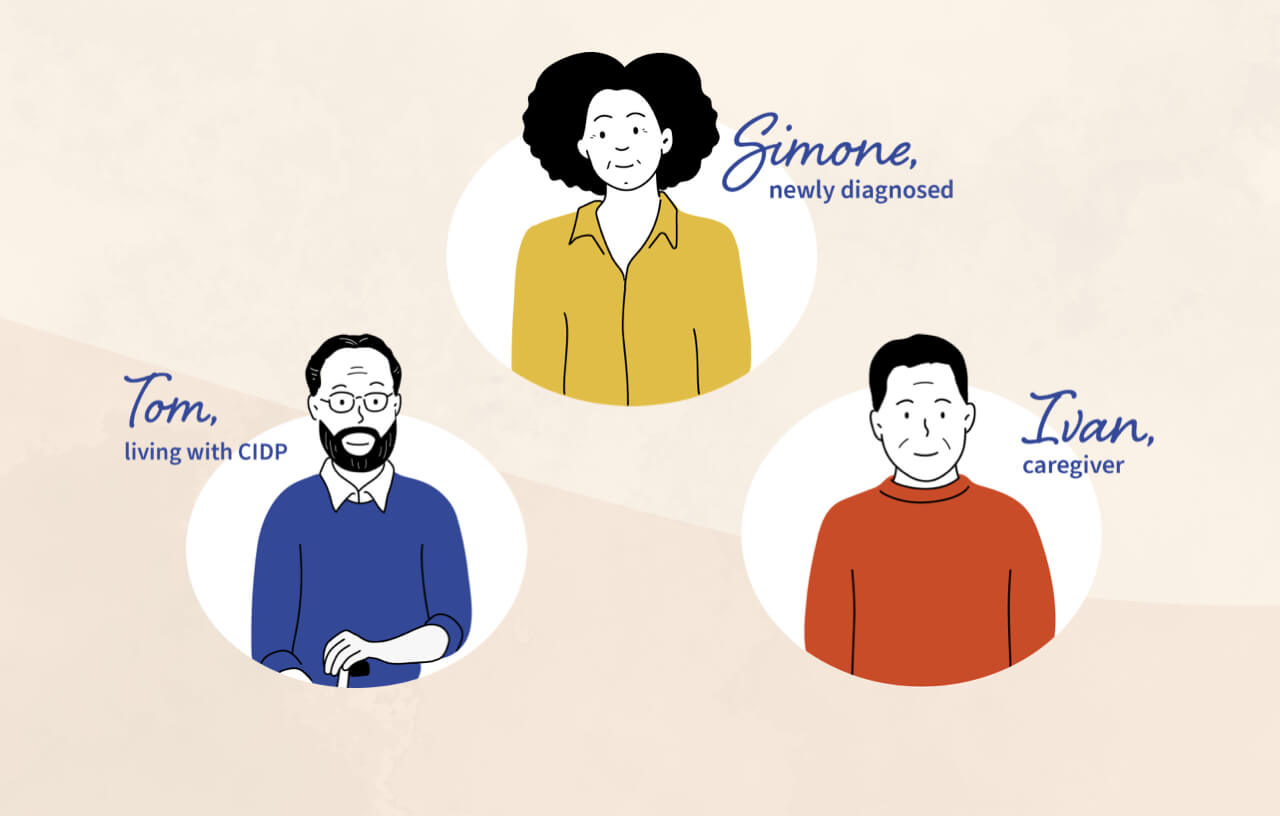While a neurologist will likely be the one to help manage and treat CIDP (chronic inflammatory demyelinating polyneuropathy), you will probably encounter other healthcare professionals who may not be familiar with this rare condition. These healthcare professionals could be a nurse in the emergency department, your dentist, a new family doctor, etc. You may need to explain that you have CIDP and how it affects you for them to understand your health history.
The doctor-patient relationship should be a partnership in which you both play an active role. In addition to your doctor’s understanding of CIDP, it’s important to have a positive relationship with them.
Whether you are sharing how you feel about your CIDP diagnosis with your primary care doctor, seeing a new doctor, or visiting an emergency department—it’s important to inform them.
Even if doctors have read about CIDP, they may not fully understand it until they see a patient living with it in their real lives.
Healthcare professionals need to know how CIDP impacts you personally
When you visit a healthcare provider who is not familiar with CIDP, it’s important to help them understand the condition. But it may be even more important to let them know how CIDP personally affects you and impacts your life.
What are some of the most important points to communicate?
- What it is: Explain that you have CIDP, a rare autoimmune condition
- How it is affecting you now: Be clear about how you feel in that moment. For example, “Right now, I am having a lot of trouble walking and have severe pain in my legs. I had to cancel all my plans this week.”
- CIDP is often confused with other conditions: CIDP symptoms can be confusing because they are similar to those of other conditions
- Your current needs and goals: Be straightforward about the help you need now and about any goals you have for the future. For example, “I am having a lot of pain, and I need help to feel better right now.” A neurologist is most likely the doctor who helps manage the treatment of CIDP, so they are the best person to share any treatment goals
- Your treatment history: Explain the treatments you use regularly as well as treatments you have tried in the past. Tell them what has and hasn’t worked for you and any side effects you may have experienced
Don’t be afraid to tell your doctor exactly what you need.
Prepping for any appointment with a healthcare provider
To help create a productive partnership with your healthcare providers, it’s important to be prepared for your visits. Be ready to share as complete a medical history as possible to help your doctor understand your present health status.
- Keep a journal—Dr. Durrani mentions that keeping a journal or a diary can help you build a larger picture of your health and how CIDP affects you. Over time, a journal can help show you and your healthcare team how CIDP impacts your day-to-day, month-to-month, and year-to-year
- Make a list for each visit—Highlight the main 3 or 4 questions you want answered. You may even want to send a list of your questions to the doctor in advance
- Consider bringing a friend or a loved one—It can be hard to remember everything on your own. So, if possible, bring along a supporter who can help you remember key symptoms and fill in any gaps in your story
Be a true partner in your care
As a partner in your healthcare, you have both rights and responsibilities. Keep this in mind when meeting with your healthcare team.
Your responsibilities include:
- Communicate openly and truthfully—Express your medical history, questions, and concerns as clearly and honestly as possible. Don’t hold back
- Cooperate with agreed-on care plans—Be sure to follow the plan your doctor creates with you. If you are unable to follow the plan, let your doctor know as soon as possible
Your rights include:
- Make the final decisions—You can accept or refuse any recommended medical management. If you do not think your needs are being met, don’t be afraid to ask questions about your care
- Know your medical history—If you want to document your visit(s), ask for your medical records. Nowadays, doctor offices have patient portals that can offer easy online access to your medical information
- Get a second opinion—In a non-emergency situation, you may have the opportunity to see another doctor for a second opinion if you feel you need one. Don’t hesitate to see another doctor if you want more reassurance
Open, two-way communication between you and your doctor is important for your health and well-being. Ensuring you’re an active partner in your healthcare can help you get the best possible care.








